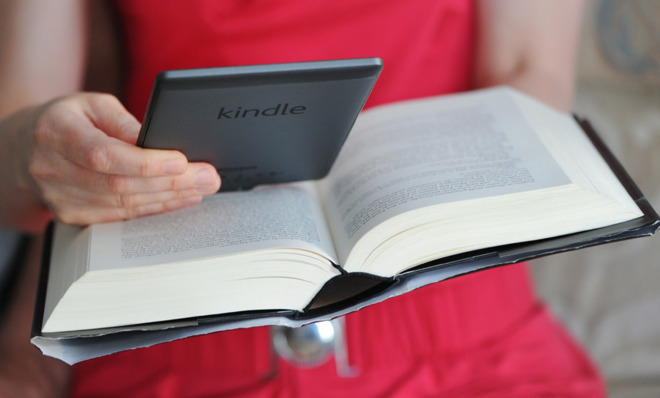Amazon's Faustian offer to indie bookstores: Make money by selling Kindles
Store owners get 10 percent from purchases made on those Kindles for two years

A free daily email with the biggest news stories of the day – and the best features from TheWeek.com
You are now subscribed
Your newsletter sign-up was successful
Amazon's proverbial trail of bodies includes at least a few mass market booksellers. That much isn't surprising. But the bloodbath has also spurred a somewhat less expected trend: Small indie bookstores — seemingly against the odds — are flourishing in the e-tailer's wake.
In 2012, for example, some 1,900 new indies sprouted up along sidewalks across the country, according to the American Booksellers Association. And the data indicates small independent bookstores have been on the upswing since 2009.
One of the reasons Amazon and small indie chains are able to coexist should be obvious: Sometimes consumers want to peruse a well-curated selection of books in a charming environment; other times it's more convenient (and less embarrassing) to read something like Catching Fire on a Kindle.
The Week
Escape your echo chamber. Get the facts behind the news, plus analysis from multiple perspectives.

Sign up for The Week's Free Newsletters
From our morning news briefing to a weekly Good News Newsletter, get the best of The Week delivered directly to your inbox.
From our morning news briefing to a weekly Good News Newsletter, get the best of The Week delivered directly to your inbox.
Amazon understands this, and this morning in a press release, announced a new scheme to leave its digital imprint on the shelves of indie bookstores across the country. The plan, dubbed Amazon Source, will allow small booksellers to sell Kindles and keep 10 percent of all digital sales made on them for the next two years.
It strikes me as somewhat of a Faustian bargain: Amazon gets to sink its teeth into the indies and carve out real-estate in front of people who really like to read, while business owners get an easy new revenue stream without expending significant resources.
But at what cost for the future? It's like 7-Eleven selling Slurpees and taquitos at your corner bodega, or Apple selling iTunes gift cards at a record store. "We suppose 10 percent of revenue is better than nothing," said Jay Yarow at Business Insider, "but this seems like a suicide mission for any bookstore that signs up."
Plus, two years isn't really that long, especially for a gadget like an e-reader. Although Amazon doesn't release actual sales figures, I'd be surprised if consumers were intent on snatching up the newest Kindle when the older model they own works perfectly fine. It's unlikely many bookstores would get repeat business from selling hardware. While Amazon's proposal isn't exactly like making a deal with the devil, I imagine it'd be difficult for any Kindle-selling indie to claim it has soul.
A free daily email with the biggest news stories of the day – and the best features from TheWeek.com
-
 Political cartoons for February 21
Political cartoons for February 21Cartoons Saturday’s political cartoons include consequences, secrets, and more
-
 Crisis in Cuba: a ‘golden opportunity’ for Washington?
Crisis in Cuba: a ‘golden opportunity’ for Washington?Talking Point The Trump administration is applying the pressure, and with Latin America swinging to the right, Havana is becoming more ‘politically isolated’
-
 5 thoroughly redacted cartoons about Pam Bondi protecting predators
5 thoroughly redacted cartoons about Pam Bondi protecting predatorsCartoons Artists take on the real victim, types of protection, and more